As we look toward the future, what should lawyers expect? Is it a business or a profession? How can we maintain high professional standards at time when so much in the legal profession is changing?
Law firms are facing 21st century challenges and they need to develop 21st century solutions to help them cope.
Innovations
The legal industry is evolving; however, few law firms are reinventing their business model. Meet one firm who is, the Forrest Firm. Lawyers Mutual interviewed James Forrest earlier this year and I’d like to share some of his thoughts on being a 21st century law firm.
The Forrest Firm was founded in January 2011 by James Forrest, a lawyer who had practiced with large law firms for most of his career. The firm continues to expand and recently opened a Greensboro office.
A few years ago, the firm updated its mission to fit a B Corporation framework. James describes his firm’s mission as striving to create a healthy, sustainable work environment for their professionals (in a profession that’s notorious for high levels of burnout, depression, and suicide), and they are committed to community involvement with intentional policies regarding volunteerism and pro bono work. The Forrest Firm gives attorneys the ability to customize their practices to fit their own work/life balance desires and personality fit (some like to network and look for business, while others enjoy the more technical legal work behind the scenes, and all enjoy the collaborative spirit of the firm). Because of this commitment to team, James said the firm is increasingly attracting great attorneys who continue to fuel the growth of the organization and attract the next wave of clients who align with their mission. As more attorneys and more clients come to the firm, others see and want to participate in a positive lawyer/client environment.
James says, “For our firm, it’s a commitment to a triple-bottom-line mentality. We’re not just in business for profits, but rather to participate in the legal profession for good. That means social and environmental responsibility. It means a focus on hiring professionals who are underrepresented in the legal profession. It also means that we are always outwardly-focused, looking for ways to give back to the communities where we live and work across North Carolina. And lastly, it means assisting non-profits and community organizations with legal work that they can’t normally afford. And our community service isn’t just limited to direct pro bono representation. We also look for other volunteer opportunities to assist non-profits (e.g., board service), hubs for entrepreneurs (e.g., mentoring and office hours) and other philanthropic efforts (e.g., donating money).
He goes on to say, “For our clients, our firm’s B Corporation certification means the opportunity to align with a firm that holds similar values. When clients see that you are authentically adhering to your mission and expanding the level we give back year after year, they want to be a part of that positive community force. Clients can get legal services from many sources, but we want to provide a unique win-win-win scenario that benefits the firm, the client, and the community.”
James is developing a law firm that relies on good business practices and he uses data to measure results, but that is only one part of his management style. He realizes that business and professionalism are not at odds with one another. In fact, running his firm like a business allows James to practice professionalism in every decision he makes.
Wellness
An article in the April 2018 issue of the ABA Journal says lawyers out of other professions rank highest on the loneliness scale. Sixty-one percent of lawyers ranked above average on the loneliness scale compared to 57 % of engineers and 55% of research scientists (other often isolating and analytical fields). Here is a sampling of the statements used to measure feelings of loneliness:
- I have nobody to talk to
- I feel as if nobody really understands me
- I feel left out
- No one really knows me well
- I feel isolated from others
- It is difficult for me to make friends
- I feel shut out and excluded by others
The ABA Hazelden study showed that lawyers are under greater stress than ever, experience depression and addictive behaviors at alarming rates compared to the general public. A particularly troubling aspect of these numbers is that lawyers are experiencing these concerns at a younger age and stage of their career.
North Carolina lawyer, Laura Mahr is the founder of Conscious Legal Minds. Laura writes a column in the State Bar Journal about her work in helping lawyers and law firms incorporate mindfulness, neuroscience and resilience- building tools into the practice of law.
Laura’s personal story is that after 10 years practicing law as a sexual violence attorney, she reached burnout. This came as a surprise to Laura as she was already practicing meditation, yoga, regular exercise and healthy eating. Laura took a sabbatical – though she almost talked herself out of it for fear of losing her professional status and identity – and began to research tools for building resilience, including neuroscience research. What she found is that evolution has wired our brains to experience the world in a reactive mode. However, we can re-wire our brains to a responsive or “in the flow” mode. When our brains are “in the flow” we experience greater productivity and increased satisfaction in our lives. Mindfulness and mindfulness meditation are neuroscience tools that can assist in the re-wiring process.
Laura writes about her experience with the Buncumbe county bar. The 28th Judicial District Bar offered a first in North Carolina, Mindfulness Meditation for Building Resilience to Stress class. When registration for the 6-week course opened, Laura didn’t know what to expect, but within a few weeks the class was filled with a wait list. The class was filled with men and women, young and not-so-young, folks who had a mediation practice and those who had never mediated. The class met in a conference room at Roberts & Stevens law firm and each week, the participants discussed neuroscience, mediation theory and tools that lawyers can put into practice daily to train their brains to be less reactive to stress. And each week, lawyers reported their personal stories of how they were integrating the tools into their lives.
Based on before-and-after assessments, 85% of the lawyers in class reported a reduction in stress. One hundred percent of the class reported that they were practicing mindfulness tools during their work day at least 5-10 times a week and some as often as 20-40 times a week.
Reach out to Laura if you are interested in learning how she can bring these results to your firm.
The practice of law is hard. Hopefully, you are developing your own 21st century solutions to the challenges the practice faces today. If you need help, give me a call.
Camille Stell is President of Lawyers Mutual Consulting & Services. Continue this conversation by contacting Camille at camille@lawyersmutualconsulting.com or 800.662.8843.








